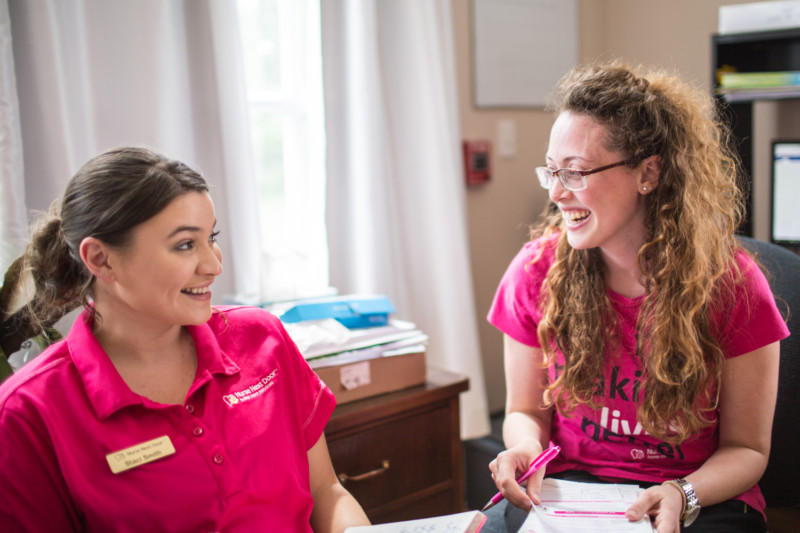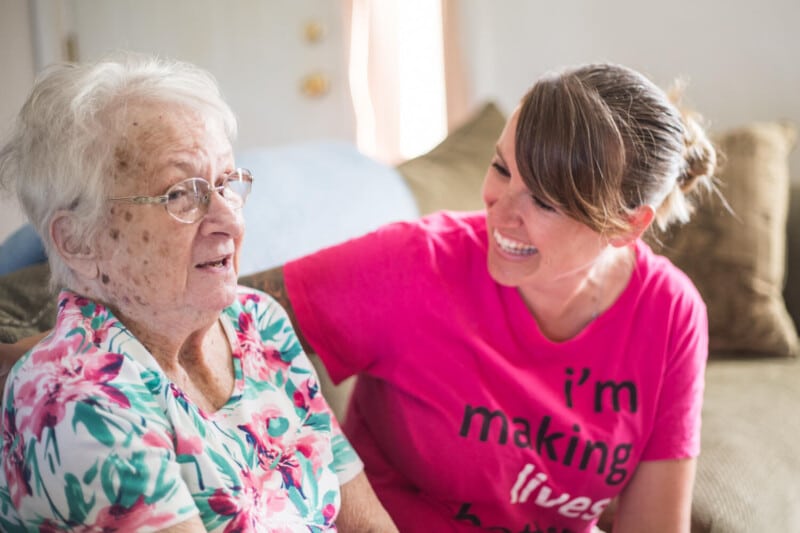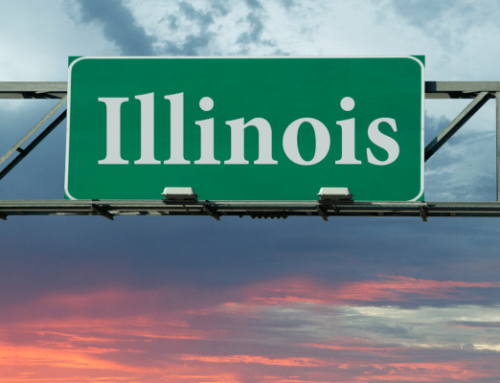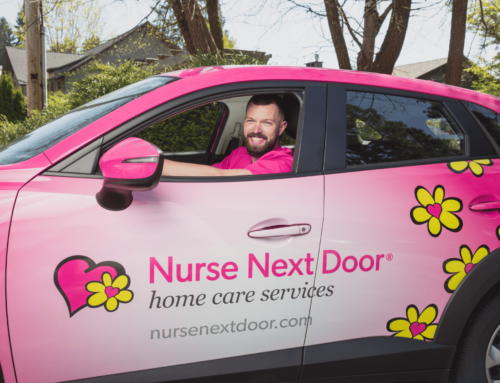The US healthcare industry is growing fast, and home health services are leading the way. More people want care that’s just for them, right at home. Starting a home health care business is not just about caring for others and having trained people to help. It’s also about getting the right license. This license shows you’re serious about giving great care.
But what you need in one state might be different in another. Each state has its own rules. So, if you want to start a business in this field, you need to know these rules well. This article will guide you through the steps of getting a home health care license. We’ll talk about what you need to do, mistakes to avoid, and how to keep everything in order in this ever-changing area.

The Landscape of the US Home Health Care Industry
In recent years, the US healthcare industry has witnessed transformative changes, especially in home care, becoming one of the nation’s most substantial sectors in both revenue and employment. As we assess the growing demand, it’s evident that an aging population, alongside advancements in medical technology, is driving the growth of alternative care delivery methods.
The home health care business has notably risen to prominence, capturing the interest of numerous entrepreneurs. Why this surge in entrepreneurial attraction? The industry’s growth is driven by the widespread desire among clients to receive personalized, high-quality care in the comfort of their homes, bypassing the intricacies of traditional healthcare settings. Recognizing this trend, entrepreneurs are identifying a lucrative opportunity, leading them to invest in home health services that cater to a broad spectrum of client needs.
Importance of Licensing in Home Health Care Business
Licensing is pivotal in the home health care industry, encompassing both non-medical and medical services. While non-medical home care primarily offers support with daily living activities like bathing, meal preparation, and companionship, medical or skilled care delves deeper, providing services such as wound care, physical therapy, and medication administration. The licensing requirements for each differ, reflecting the complexities of the care provided.
It’s more than just meeting legal requirements; it’s a testament to an agency’s dedication to providing exceptional care. Licensing mandates that agencies align with the rigorous standards established by state and federal authorities, assuring clients of quality care. It also underscores safety by confirming that team members, be they registered nurses or nursing assistants, have been adequately trained, vetted, and certified.
For those aspiring to venture into this field, licensing isn’t just a formal necessity. It’s about establishing a solid foundation of trust in an arena where the quality of care is critical. In essence, securing a license sets the tone for an agency’s credibility, ethical operations, and long-term success.
Diverse Licensing Requirements Across States
For many looking into how to get a license for a home health care business, understanding the varied landscape of U.S. regulations is the first step. Home health services, whether they involve skilled nursing services or are more general, come with different requirements in every state.
While licensing fees might be a consideration in some states, others may require medicare certification. The vast differences between state and federal laws make it imperative for those aiming to set up a home health care business to familiarize themselves with specifics.
Notable Differences: A Look at Canada’s Regulations
Venturing into the Canadian home health agency landscape? It’s worth noting that Canada, like the U.S., has diverse regulations for home health services. The foundation remains the same, ensuring the highest quality of health care, but each province or territory might have its nuances.
For instance, the balance between nursing services and personal care can vary. Entrepreneurs in Canada, just as in the U.S., should be well-versed in regional requirements, especially if they’re considering providing specialized services like those of licensed practical nurses or certified nursing assistants.
Acquiring a License for Your Home Health Care Business
Embarking on the journey of setting up a home health care business is a significant step, filled with various complexities tied to the licensing process. Navigating these intricacies, especially for newcomers, can seem daunting. This is where partnering with Nurse Next Door becomes invaluable. With our comprehensive expertise and resources, we guide you through the nuances of the licensing landscape, ensuring you’re well-equipped at every milestone. Here’s a broad outline of the steps you can expect along the way:
- State Regulations: Every state has its distinct regulations. It’s crucial to familiarize yourself with these, especially regarding the qualifications required for your management team and nursing supervisor. Nurse Next Door’s policy and procedure manuals are tailored to match specific state standards, making the process less cumbersome for you.
- Licensing Fees: These fees can differ significantly based on the state. To ensure accuracy, we recommend referencing your state’s official website or regulatory body for a precise fee structure.
- Certificate of Need: For those intending to provide Medicare and Medicaid services, certain states necessitate a Certificate of Need. Secure this certificate in advance of the main licensing application, if applicable in your state.
- Office Space: Select a location that adheres to local zoning laws. If you’re considering setting up in your home, a distinct, secure space for records is essential. Moreover, some states may have specific requirements, like ensuring public access during business hours. It’s also recommended to include a copy of your lease or rental agreement in the licensing application.
- Business Plan: Certain states may request a detailed business plan. Nurse Next Door supports its partners by offering a comprehensive business plan template that can be adapted to meet individual requirements.
- Business Registration: For U.S. based businesses, registration is typically with the Secretary of State and State Department of Revenue Services. For those in Canada, the CRA is the go-to registration entity.
- Team Assembly: Hiring key personnel such as an Administrator, Director of Nursing, and a backup RN is integral. Ensure that the team aligns with state requirements and is trained to deliver high-quality home health services.
- Staff Vetting Process: It’s paramount to ensure all staff undergo thorough background checks. This means validating nursing licenses and other essential credentials with relevant state boards.
- Staff Training: Training is a cornerstone of excellence. State regulations may necessitate certain training modules before granting a license. Regular training sessions and workshops should be integral to your operational calendar. At Nurse Next Door, we underscore this importance by initiating every new recruit with a special orientation, known as “Discovery Day.”
- Structured Staffing: Clearly delineated roles and responsibilities can make the difference between a good and an exceptional home health care service. To this end, Nurse Next Door provides its partners with adaptable job description templates.
- Insurance: Protecting your agency is non-negotiable. This usually entails procuring liability insurance and workers’ compensation. Depending on the state, there might be other insurance prerequisites. Nurse Next Door has collaborated with reliable insurance vendors to assist you throughout this process.
- License Inspection: Before granting a license, most state authorities will conduct a detailed inspection to ascertain your agency’s compliance with all regulations.
Remember, while the above steps provide a general framework, nuances might arise based on state-specific guidelines.
Preparing Essential Documents
A smooth licensing process is a product of meticulous preparation. Ensure you have these documents at the ready:
- License Application: This encapsulates details about your agency’s services, intentions, and structural blueprint.
- Renewal Application: Regularly updating your license is key to ongoing compliance and operation.
- Background Checks: Prioritize safety by having comprehensive background checks for all staff members. This is often a mandated requirement across most states.
- Medicaid Documentation: Should you provide Medicaid services, the relevant documentation must be accurate and complete.
Each state may introduce its unique documentation requisites, so consistent liaison with local state authorities is recommended.
Navigating Common Challenges & Best Practices
Starting a home health care journey is thrilling, but it’s natural to encounter a few hurdles along the way. Fortunately, being forewarned is forearmed. Here’s a glance at common challenges and the best practices to sail through them:
Application Details: One of the common challenges faced by many is an incomplete application. The remedy? Double-check to ensure every section is filled and every required document is attached. This careful attention can expedite your application process.
Staying Ahead of Deadlines: We all know how time flies, and sometimes deadlines can approach quicker than anticipated. Avoid late fees by marking important dates on your calendar and setting timely reminders.
Remember, proactivity and attention to detail are your best allies in ensuring a hassle-free licensing journey.
Home Health Care License Renewal & Maintenance
Securing your home health care license is a notable achievement. However, this is just the beginning. To uphold the highest standards, it’s vital to keep your licensure updated and in check. Here’s a concise guide on staying current:
- Renewal Application: Depending on state regulations, licenses need renewal, typically either annually or biennially. This is more than just a formality—it’s a commitment to staying aligned with evolving health care norms.
- Expect the Unexpected: State authorities value quality and adherence to standards. It’s not uncommon for them to conduct spontaneous inspections. Welcoming these inspections showcases your dedication to excellence.
- License Display: A simple yet crucial practice—always display your current license. It’s a mark of authenticity and transparency.
- Stay Educated: Healthcare is an evolving field. Some states emphasize the importance of continuous learning for healthcare providers, so ensure you’re up-to-date with the latest best practices.
It’s essential to view the periodic license renewal and inspection process positively—it’s an affirmation of your agency’s commitment to offering safe, high-quality care. Embrace every opportunity to demonstrate your dedication to excellence.
How Nurse Next Door Simplifies the Journey in Home Health Care Licensing
Stepping into the vast expanse of the home health care industry is undeniably a challenge. Yet, with the right franchise partner, the complexities of licensing become a journey of learning and growth. So, what makes Nurse Next Door an invaluable ally in this venture?
Right from the get-go, during our initial dialogue, our team provides clarity on the intricate home health care licensing requirements tailored to your specific state, streamlining your approach.
But our engagement doesn’t just halt there. A cornerstone of our franchise support is the dedicated 1-hour session where we break down the licensing process. Here, you can freely address any questions or uncertainties, ensuring you’re well-prepared for the road ahead.
Given our rich history in guiding franchise partners through the maze of the health care industry, we’ve curated invaluable templates designed to simplify and accelerate your licensing process. This not only saves precious time but guarantees accuracy and thoroughness.
In essence, while home health care licensing may initially appear formidable, Nurse Next Door acts as your knowledgeable guide. With an arsenal of experience and a track record of success, we’re committed to transforming challenges into tangible achievements for our franchise partners.
To Wrap Up!
Starting a successful journey in the home health care industry requires passion, dedication, and the right guidance. Proper licensing isn’t just a step you check off – it’s the foundation that shows your commitment to safety and top-quality care. With Nurse Next Door supporting you, every part of getting licensed becomes clearer and more manageable.
Ready to make your mark in home health care? The expert team at Nurse Next Door, led by our Franchise Development Business Manager, is here to guide you. Call 1-855-737-6803 today to embark on a fulfilling journey in this expanding industry. Alternatively, request a Welcome Package to get started!
Disclaimer: Regulations and requirements can evolve over time. It’s crucial for readers to stay updated with current state and federal regulations. Consulting with a legal professional is always recommended to ensure full compliance.

 x
x









